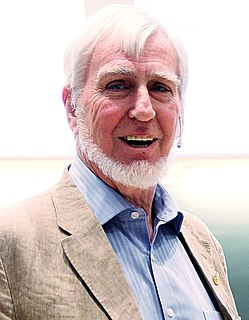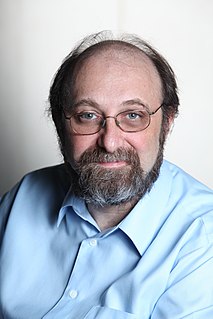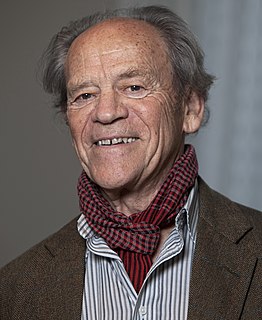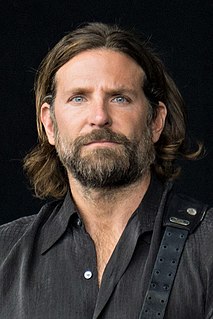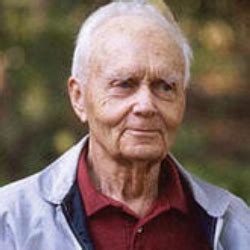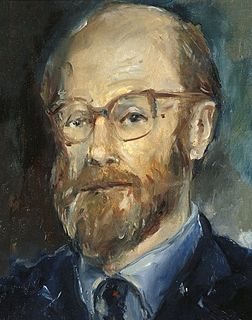Top 133 Neural Quotes & Sayings - Page 2
Explore popular Neural quotes.
Last updated on December 25, 2024.
But if you tell folks you're a college student, folks are so impressed. You can be a student in anything and not have to know anything. Just say toxicology or marine biokinesis, and the person you're talking to will change the subject to himself. If this doesn't work, mention the neural synapses of embryonic pigeons.
The key to transforming mental models is to interrupt the automatic responses that are driven by the old model and respond differently based on the new model. Each time you are able to do this, you are actually loosening the old circuit and creating new neural connections in your brain, often referred to as self-directed neuroplasticity.
Our brain and our whole nervous system and our whole body are only created in relation to other people and to the environment. So what we have here is an enormously complex notion of both consciousness and unconsciousness. That's why these models get very difficult, because you can't reduce our subjective and intersubjective experience to neural reductions.
Cognitive neuroscience is entering an exciting era in which new technologies and ideas are making it possible to study the neural basis of cognition, perception, memory and emotion at the level of networks of interacting neurons, the level at which we believe many of the important operations of the brain take place.
How can you be sure?" "I'm a doctor, Jenna. And a scientist." "Does that make you an authority on everything? What about a soul, Father? When you were so busy implanting all your neural chips, did you think about that? Did you snip my soul from my old body, too? Where did you put it? Show me! Where? Where in all this groundbreaking technology did you insert my soul?
I just thought making machines intelligent was the coolest thing you could do. I had a summer internship in AI in high school, writing neural networks at National University of Singapore - early versions of deep learning algorithms. I thought it was amazing you could write software that would learn by itself and make predictions.
For my part, I think we need more emotion, not less. But I think, too, that we need to educate people in how to feel. Emotionalism is not the same as emotion. We cannot cut out emotion - in the economy of the human body, it is the limbic, not the neural, highway that takes precedence. We are not robots...but we act as though all our problems would be solved if only we had no emotions to cloud our judgement.
I spent a lot of time reading blogs by mothers who had children with varying degrees of neural dysfunction, from schizophrenia to all sorts of different issues. And honestly, I don't think it's different for anybody. There's no right way to make sure your child will be emotionally and mentally healthier. It's just frustrating.
I had a stormy graduate career, where every week we would have a shouting match. I kept doing deals where I would say, 'Okay, let me do neural nets for another six months, and I will prove to you they work.' At the end of the six months, I would say, 'Yeah, but I am almost there. Give me another six months.'
In the past, Google has used teams of humans to 'read' its street address images - in essence, to render images into actionable data. But using neural network technology, the company has trained computers to extract that data automatically - and with a level of accuracy that meets or beats human operators.
There will be no one like us when we are gone, but then there is no one like anyone else, ever. When people die, they cannot be replaced. They leave holes that cannot be filled, for it is the fate - the genetic and neural fate - of every human being to be a unique individual, to find his own path, to live his own life, to die his own death.
In my view, while the single neuron is the basic anatomical and information processing-signaling unit of the brain, it is not capable of generating behaviors and, ultimately, thinking. Instead, the true functional unit of the central nervous system is a population of neurons, or neural ensembles or cell assemblies.
The objective psychologist, hoping to get at the physiological side of behavior, is apt to plunge immediately into neurology trying to correlate brain activity with modes of experience ... The result in many cases only accentuates the gap between the total experience as studied by the psychologist and neural activity as analyzed by the neurologist.
Innate mechanisms endow the visual system with highly specific connections, but visual experience early in life is necessary for their maintenance and full development. Deprivation experiments demonstrate that neural connections can be modulated by environmental influences during a critical period of postnatal development.
Going a little further into the future, we'll start literally connecting to machines. Some of my colleagues at MIT here - some of them are working on a neural mesh that connects directly to your brain, and they've already done it with some disabled people and allowed them to move objects just by thinking.
There have been studies done on people who meditate and they have found that they actually have increased grey matter in certain parts of their brain and more neural conductivity, meaning more connections between certain parts of the brain. They have increased capacity for, in some cases, memory, or reasoning.
You gleefully say, "I just thought of something!", when in fact your brain performed an enormous amount of work before your moment of genius struck. When an idea is served up from behind the scenes, your neural circuitry has been working on it for hours or days or years, consolidating information and trying out new combinations. But you take credit without further wonderment at the vast, hidden machinery behind the scenes.
The task of neural science is to explain behaviour in terms of the activities of the brain. How does the brain marshall its millions of individual nerve cells to produce behaviour, and how are these cells influenced by the environment...? The last frontier of the biological sciences – their ultimate challenge – is to understand the biological basis of consciousness and the mental processes by which we perceive, act, learn, and remember.
What we mean by information - the elementary unit of information - is a difference which makes a difference, and it is able to make a difference because the neural pathways along which it travels and is continually transformed are themselves provided with energy. The pathways are ready to be triggered. We may even say that the question is already implicit in them.
All children want to do is play in worlds they create and project on their external world. If allowed to do that, they are constantly building new neural structures for creating internal worlds and projecting them on their external world. And they build up an enormous self-esteem and feeling of power over the external world through their own capacities.
The conscious mind can only pay attention to about four things at once. If you've got these nagging voices in your head telling you to remember to pick up the laundry and call so-and-so, they're competing in your brain for neural resources with the stuff you're actually trying to do, like getting your work done.
My central thesis is that combining increased temporal and spatial resolution in MRI techniques with increasingly powerful data correlation techniques will allow the derivation of interpreted meanings from neural signals. I observed, further, that the techniques that exist already allow some correlations.
Even the clearest localization of pain in one area may, in fact, be originating from a distant area .... The reference of pain implies the existence of convergence of inputs within the spinal cord. This leads to the necessary involvement in central neural circuits in the simplest of peripheral disorders. It also leads to the possibility that the basic disorder is entirely central.
In the economy of the body, the limbic highway takes precedence over the neural pathways. We were designed and built to feel, and there is no thought, no state of mind, that is not also a feeling state.
Nobody can feel too much, though many of us work very hard at feeling too little.
Feeling is frightening.
If you want to make information stick, it's best to learn it, go away from it for a while, come back to it later, leave it behind again, and once again return to it - to engage with it deeply across time. Our memories naturally degrade, but each time you return to a memory, you reactivate its neural network and help to lock it in.










